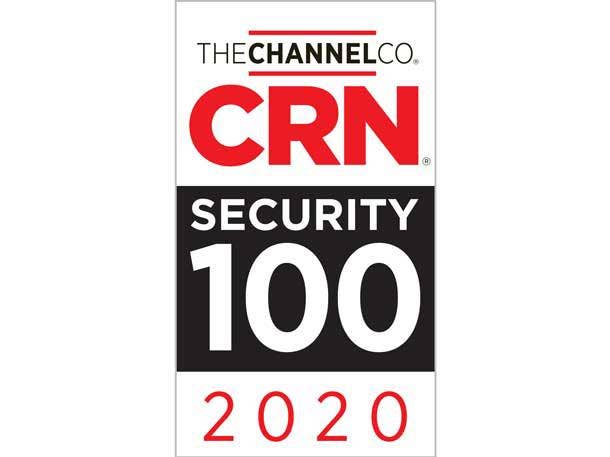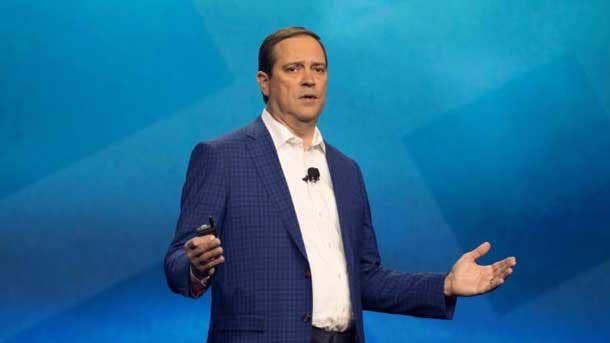The 20 Coolest Network Security Companies Of 2020: The Security 100
Part one of CRN's 2020 Security 100 list looks at 20 companies that have raised their game to meet continued network security needs.

Defending The Network
Network security companies are grappling with attackers trying to find and exploit the vulnerabilities of networks, going after everything from devices and applications to data, users and locations. Market growth has been driven by protecting and mitigating against DDoS attacks as well as safeguarding against emerging IoT, OT, and industrial control system threats.
Three network security vendors on CRN's annual Security 100 list wanted to synthesize the collection and analysis of disparate data as well as automate the response to issues with SOAR (Security Orchestration, Automation and Response) tools. This drove Palo Alto Networks’ $560 million buy of Demisto, FireEye’s $250 million purchase of Verodin, and Fortinet’s $28 million buy of CyberSponse.
Here's a look at 20 vendors that have raised their game to meet continued network security needs.

Armis
Yevgeny Dibrov
Co-Founder, CEO
The Armis Agentless Device Security Platform A p p w a s made available on Palo Alto Networks Cortex to help joint customers develop cloud-based apps that deliver cybersecurity capabilities. Insight Partners in January agreed to purchase Armis at a $1.1 billion valuation to strengthen its market position in unmanaged device security.

Aruba, a Hewlett Packard Enterprise Company
Keerti Melkote
Co-Founder, President
Aruba ClearPass Device Insight lets IT teams automate authentication and policy enforcement down to the device and user level, applying access policies based on the role designated for the device. Integrating Aruba ClearPass with Aruba 8000 Series Core Switches helps ensure access is granted to the right users.

Check Point Software Technologies
Gil Shwed
Founder, CEO Check Point
Maestro allows companies to easily scale up their security gateways on demand in the same way new servers and compute resources are spun up in the public cloud. Check Point bought Cymplify to defend IoT devices against highly sophisticated attacks by hardening and protecting the devices’ firmware.

Cisco Systems
Chuck Robbins
Chairman, CEO
Cisco Meraki introduced several security features including device authentication, DNS traffic protection, content filtering, and enhanced security appliance firewall rules. The company also combined incident response and retainers into Talos, increasing customers’ access to threat intelligence to feed response plans.

Claroty
Thorsten Freitag
CEO
Claroty expanded its OT platform to monitor IoT devices, giving companies greater visibility into the devices sitting on their networks that could be exploited. Freitag joined as CEO in October with a commitment to making Claroty’s data more consumable for IT departments through simplification and by adding more features into the GUI.

Cloudflare
Matthew Prince
Co-Founder, CEO
Cloudflare’s Magic Transit helps protect enterprise networks from DDoS attacks and enable the provisioning of IP packet filtering and firewalling, load balancing and traffic management tools. Cloudflare bought S2 Systems for $39.2 million to defend endpoints from zero-day vulnerabilities without sacrificing speed or user experience.

Darktrace
Nicole Eagan, Poppy Gustafsson
Co-CEOs
Darktrace’s Cyber AI Analyst has reduced the time to triage by 92 percent by emulating human thought processes to investigate cyberthreats at machine speed. An expansion of the Antigena autonomous response configuration provides enhanced control across network, cloud and email to better define what it will do in response to a threat.

FireEye
Kevin Mandia
Board Director, CEO
FireEye acquired Verodin to help find security effectiveness gaps due to equipment misconfiguration, new attacker tactics or changes in the IT environment. Detection On Demand, meanwhile, provides real-time detection, allowing customers to submit everything from Dropbox files to Amazon S3 buckets for analysis.

ForeScout
Michael DeCesare
President, CEO
The SilentDefense 4.0 OT network monitoring and intelligence platform gives customers improved productivity, lower risk profiles and faster threat mitigation. Forescout EyeSegment helps companies secure critical applications, mitigate exposure from IoT devices, and limit the lateral movement and blast radius of network-based threats.

Fortinet
Ken Xie
Founder, Chairman, CEO
Fortinet’s Secure SD-Branch increases visibility, reduces complexity, improves performance and lowers overall IT costs at the edge of the network. Partner-focused Security-as-a-Service cloud offerings were expanded to help customers streamline threat correlation.

Gigamon
Paul Hooper
CEO
Gigamon Application Intelligence provides visibility into complex digital apps with depth and breadth, helping ensure the security and performance of the digital enterprise. The Gigamon ThreatInsight Network Detection and Response tool uses machine learning and applied threat research to reduce investigation and response time.

Infoblox
Jesper Andersen
President, CEO
The BloxOne Threat Defense hybrid DNS tool secures enterprises’ existing networks as well as digital transformations like cloud, IoT and SD-WAN deployments. Infoblox acquired cloud-native network operating system provider SnapRoute to accelerate the development and delivery of additional network services on its platform.

Juniper Networks
Rami Rahim
CEO
Telefonica UK’s new infrastructure provided by Juniper ensures regulatory compliance and customer data protection. The Juniper SRX Series Security Gateway received a “recommended” rating in NSS Labs testing due to its ability to protect the data center in a secure and cost-effective manner.

NetScout
Anil Singhal
Co-Founder, Chairman, President, CEO
NetScout’s Arbor Threat Analytics provides visibility and early warning of threats and risks to digital services across any network or any cloud. New capabilities for nGeniusPulse enable testing of network and application availability and performance over Wi-Fi connections as well as testing for performance within an application.

Netskope
Sanjay Beri
CEO
Netskope for Private Access was introduced as a cloud-based service for secure, zero trust access to private enterprise applications in the public cloud and data center. The new Netskope NewEdge globally distributed network infrastructure enables the company’s platform to deliver real-time security without availability or performance trade-offs.

Opaq
Glenn Hazard
Chairman, CEO
The Opaq Cloud provides up to 15 billion Gbps of hyperscale Security-asa-Service networking to support digital transformation. Ingram Micro and Cloud Harmonics began carrying the Opaq cloud platform after notching distribution agreements to improve its penetration into the VAR, MSP, MSSP and service provider markets.

Palo Alto Networks
Nikesh Arora
Chairman, CEO
The $560 million buy of SOAR vendor Demisto bolstered Palo Alto Networks’ ability to use AI and machine learning to further automate parts of customers’ security operations. In addition, through its $75 million buy of Zingbox the company gained the capability to deliver IoT security as an integrated service.

Pulse Secure
Sudhakar Ramakrishna
CEO
The Pulse Access Suite with SDP (software-define perimeter) offers provisioning simplicity, security posture fortification and lower TCO. The debut of new management and threat mitigation capabilities within its platform let companies mitigate hybrid IT risks while simplifying access to multi-cloud and data center resources.

SonicWall
Bill Conner
President, CEO
SonicWall unveiled the My Workspace interface to give MSSP administrators visibility into the security status of different customers from a central dashboard. It also revealed plans to introduce pay-asyou-go pricing around its Capture Client endpoint protection platform and Cloud App Security tool in early 2020.

WatchGuard
Prakash Panjwani
CEO
The DNSWatchGO cloud-based security service automatically detects and blocks phishing attacks, command and control callbacks and data exfiltration attempts inside and outside the network perimeter. The FlexPay program was expanded to include fully automated monthly billing for its network security hardware and services.